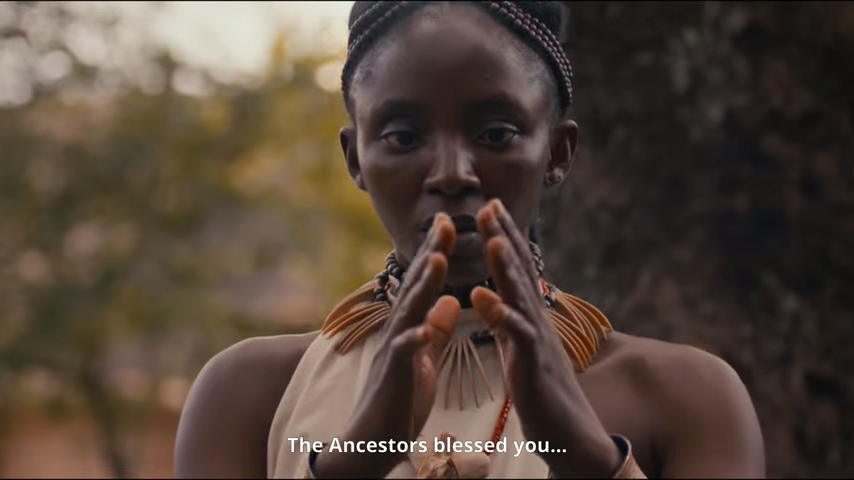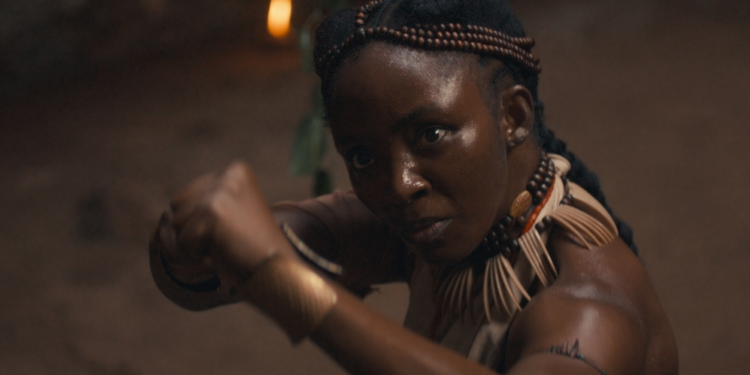Lilian Olubi’s Osamede, directed by James Omokwe, arrives in Nigerian cinemas with the prestige of having been showcased at the Cannes Film Market.
While the film stands out for its cultural depth and commitment to the Benin language, its artistic ambition is somewhat undermined by sluggish pacing, overextended flashbacks, and uneven acting that prevent it from fully realizing its epic promise.
The film follows the journey of a young orphan who discovers her supernatural connection to the legendary Aruosa stone — a sacred emblem of Benin’s spiritual heritage. Her newfound power draws her into a fierce struggle against both British forces and a cunning adversary bent on exploiting the stone’s mystical energy.

A Cultural Gem Wrapped in Imperfect Craft
There’s no denying Osamede’s visual sincerity. From the clay architecture to the ornate beadwork and detailed traditional costumes, every frame proudly wears the essence of Benin culture. The decision to tell the entire story in the Bini language without slipping into English gives the movie an unfiltered cultural voice that feels both daring and refreshing in Nigerian cinema.
The performances of Ivie Okujaye, William Benson, and Lexan Aisosa Peters bring an emotional backbone to the story. Ivie delivers a commanding portrayal of Osamede—her fear, defiance, and vulnerability are vividly felt. Benson’s intimidating portrayal of Iyase and Peters’ grounded performance as her ally further enrich the narrative. Osagie Elegbe also leaves a mark with his convincing loyalty and presence.
When the Magic Slows Down
However, the movie’s greatest strength—its dedication to authenticity—also exposes its weakness. The pacing drags in several scenes, stretching emotional beats longer than necessary. Repeated flashbacks and scenes that recycle earlier moments interrupt the story’s flow, leaving the viewer occasionally disengaged.
Some supporting actors fail to match the leads’ energy, and a few extras unintentionally break immersion with awkward expressions. The portrayal of British characters feels particularly artificial, with stiff dialogue that doesn’t blend well with the otherwise grounded tone of the film.

Missing Sparks in the Action
The action sequences, though ambitious, lack the rawness needed to complement the epic tone. The fight choreography feels too rehearsed, depriving the battles of intensity and realism. It’s a missed opportunity for a story that thrives on power, struggle, and destiny.
Verdict
Osamede deserves praise for its courage to prioritize indigenous storytelling and cultural pride, but its technical flaws hold it back from greatness. It’s a film that shines in intention but stumbles in execution — visually stunning, spiritually rich, yet dramatically uneven.

















